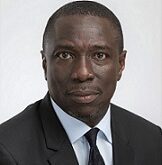Stakeholders in the education sector in the Northwest have described the performance of students in the West African Senior School Certificate Examination (WASSCE) over the last five years as disappointing.
The stakeholders blamed the situation on poor funding, students’ poor attitude to learning and the lack of motivation for teachers.
In Kaduna State, the performance rate hovered between 12.8 per cent and 17.5 per cent over the period.
Cumulatively, 158,035 students sat for WASSCE from 2011 to 2015, and they recorded 12.8 per cent pass in five subjects and above, including mathematics and English Language.
The record, obtained from Kaduna State Educational Resource Centre, shows that out of 135,957 results released, 19,137 passed with the required number of credits for admission to tertiary institutions during the period.
The record shows that in 2011, 2,877 students, representing 10.7 percent, passed out of 26,734 students whose results were released.
The record shows that 35,214 students sat for the examination during the year.
“Thirty-three thousand, one hundred and five students sat for the examination in 2012 and the results of 28,496 students were released out of which 4,957 passed, representing 14.9 per cent.
“Also, in 2013, 36,291 students sat for the examination and 33,614 results were released, but only 3,274 passed, representing nine per cent.
“In 2014, 25,653 students sat for the examination; 21,315 results were released out of which 3,156, representing 12.3 per cent passed.
“Meanwhile 27,772 students sat for the examination in 2015 and 25,798 results were released, out of which 4,873 passed, representing 17.5 percent,” the record indicates.
Mr Ishaya Tabat, a lecturer with the Kaduna State College of Education, Gidan Waya, blamed the development on the dearth of quality teachers and poor funding of the education sector.
Tabat also said that poor supervision and the absence of teacher’ training also added to the challenge of the sector.
“Because of the lack of sufficient funding in the education sector, educational institutions find it difficult to ensure continuous training of teachers to improve their quality.
“Also, supervision that requires manpower and other logistics to ensure that teachers carry out their tasks effectively and as when due had been neglected due to funding problems,” he added.
He called on government at all levels to properly fund the education sector to give room for teachers’ training and improvement in quality service delivery.
A teacher with Government Secondary School Manchok, Mrs Kubai Bature, also identified lack of instructional materials in schools and students’ attitude to learning as factors in the poor performance.
“Most schools do not have teaching aids that would make teaching very effective, interesting and make learning easy for the students.
“For the sake of the students, teachers should improvise because teaching aids remain crucial tools for impacting knowledge.
“Not only that, the attitude of the students towards learning is another problem. Most of the students spend more time on social media than they spend reading their books. They just don’t read,” she said.
She called on government to equip public schools to make learning easy and interesting.
In Kebbi, the rate of failure was also very high with less than five per cent of the candidates getting the required number of credits to proceed to higher institutions.
Alhaji Magawata Aleiro, the Commissioner for Education, said, in 2012, a total of 22,151 students registered for WASSCE but only 1, 650, representing 7.44 percent had five credits, including English Language and mathematics.
Also, in 2013, out of 22, 084 candidates who sat for the examination, only 812, representing 3.7 percent, passed with five credits.
The trend of failure did not change significantly in 2015, as only 2, 529 students were successful out of 24, 696 who sat for the examination.
The result for 2016 was not available as West African Examination Council (WAECF), organisers of the examination, had refused to release the result for students from the state because of the failure of the state government to settle the N180 million it was owed.
Following the development, some 27,670 students who sat for the examination are still awaiting their results.
In Kano State, the Ministry of Education also decried the woeful performance of students in the examination.
Records gotten from Kano State Educational Resource Department indicated that 50,075 students wrote the exam in 2012 but 9,944 students met the minimum university entry requirement.
Alhaji Ado Dahiru,the Coordinator of examinations in the ministry, said the figure represented 19.38 percent of the total number of candidates.
He said in 2013, out of the 50,640 students who sat for the examination, 18,159, representing 35.86 percent had five credits and above.
Dahiru said that in 2014, there was a minor upward shift as 37.95 per cent of the students passed. 48,567 students sat for the examination during the year under review and 15,791, had credits in five subjects and above, including mathematics and English Language.
He added that in 2015, a total of 13, 069 out of the 45,347 students obtained the required number of credits.
Dahiru said the upward trend in the success of students was an indication that the state was addressing the problems of the education sector.
A teacher at the Kano Capital School, Malam Musa Bello said politics, harsh economic conditions as well as unskilled teachers, overcrowded classrooms and lukewarm attitude of students to learning contributed to the poor records.
Other stakeholders attributed the situation to poor funding, which had resulted in irregular supervision of teachers, absence of instructional materials and other basic facilities for teaching and learning.
Malam Harisu Ahmed, the Public Relations Officer of the Ministry of Education, said the lack of motivation had affected the quality of teachers.
Meanwhile, in Katsina State, the government has reviewed its free education policy and insists that only students who pass the mock SSCE will be funded by the government.
Gov. Aminu Masari said while inspecting some schools in Katsina that the government would pay examination fees of only those with the capacity to pass.
“My administration has no plan to discontinue the payment of examination fees for students sitting for WAEC, NECO and NABTEB.
“Being an APC governor, education, agriculture, water supply and healthcare are our key priorities.
“The administration will pull out all the stops to ensure that by December 2016, at least 40 percent of primary and secondary schools as well as primary and secondary health institutions in the state are comprehensively rehabilitated,’’ he said.
He said that the decision was part of the administration’s determination to make the state regain its position as a center of learning, excellence and peace.
Masari said that in 2014, the state government paid two billion naira to WAEC and NECO for 22,000 students, but only 20 percent got five credits and above.
Similarly, in 2015, the government paid N1.5 billion to the examination bodies for 17, 000 students, but only 25 percent got five credits and above.
Masari, however, said that students of private secondary schools had been recording 45 per cent pass in the past three years.
In Zamfara, some residents said students’ performance, especially in public schools, was poor.
A teacher, Abduganiu Nasir, said private schools had more competent teachers than in public schools, where most teachers were not serious in their job.
Musa Abdullahi also a teacher, said the government must give priority to education to address the problem. Similarly, Maryam Yusuf, a parent, said the state government had not been very serious with the issue of education.
Maryam said the government had not kept to its commitment to pay the SSCE fees for students in schools, as it promised.
 PH Mundial – Port Harcourt Online Newspaper News Across The Region
PH Mundial – Port Harcourt Online Newspaper News Across The Region




